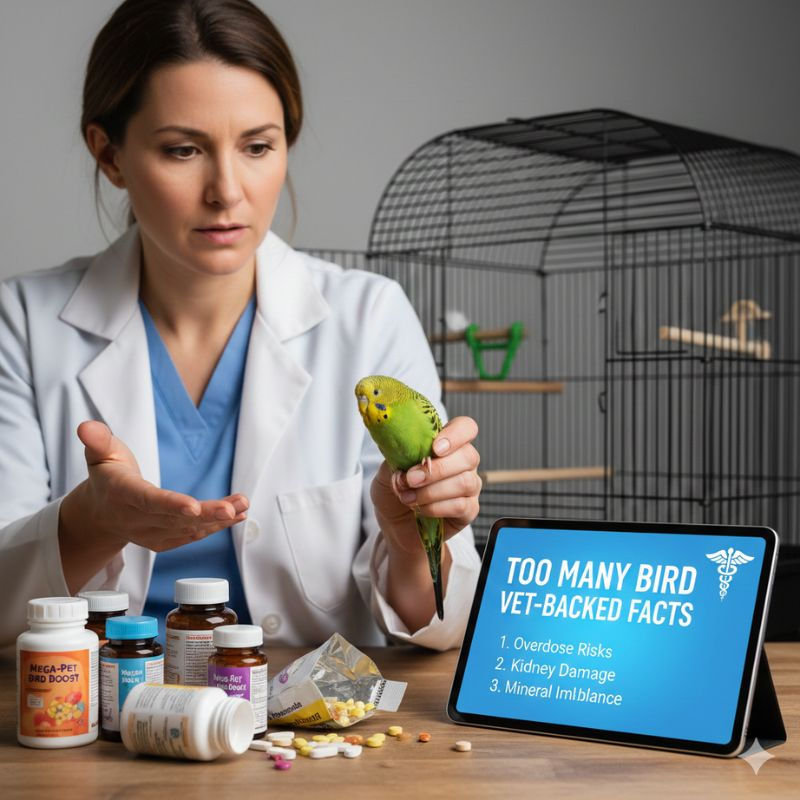Why Bird Food in Summer Matters More Than You Think
- petperchlove
- Apr 24, 2025
- 3 min read

When we think of summer, we often imagine blooming flowers, longer days, and the delightful chirping of birds in our gardens. But did you know that Bird Food in Summer is just as important—if not more—than during winter months? Whether you're caring for wild birds in your backyard or nurturing a feathered companion indoors, understanding seasonal dietary needs is essential. Let’s explore why birds food during the hot months deserves your attention and how to provide the right nutrition to keep them healthy and happy.
The Hidden Challenges Birds Face During Summer
Though summer brings an abundance of natural food sources like insects, seeds, and fruits, it also presents a unique set of challenges for birds:
Dehydration Risk: High temperatures increase the risk of dehydration.
Food Spoilage: Natural and stored birds food can spoil faster due to heat.
Increased Energy Demand: Birds require more energy to stay cool, especially when they’re more active during the day.
Nesting and Breeding Needs: Many species breed during summer, and parents need extra nutrition to raise chicks.
Providing the right Bird Food in Summer can help birds maintain their energy, stay hydrated, and ensure healthy development for their young.
The Role of Bird Food in Summer for Pet Birds
If you’re a pet bird owner, summer nutrition is even more crucial. Pet bird food must be monitored for quality and freshness due to the risk of spoilage from humidity and heat.
Key Points to Remember:
Keep Food Fresh: Always check expiration dates and avoid leaving food in the open for too long.
Hydration is Key: Along with pet bird food, always provide clean, cool water—refreshed multiple times a day.
Avoid High-Fat Diets: Opt for lighter seed mixes, fresh fruits, and vegetables that are suitable for the species.
Some brands also offer Bird Food in Summer blends designed to provide seasonal nutrients. These are ideal for both pet and wild birds during the warmer months.
What Makes a Good Summer Diet for Birds?
Whether you're feeding a parrot or a cardinal, a balanced summer diet should contain:
Fresh Fruits and Vegetables: Apples, berries, and leafy greens are excellent.
High-Quality Seeds and Pellets: Choose formulas with natural ingredients and added vitamins.
Calcium and Protein: Especially important for breeding birds or those raising chicks.
Hydration Aids: Some foods now include ingredients that help retain water.
For wild birds, offering a variety of birds food options such as suet alternatives (like no-melt suet), nectar, and soft fruits can make your garden a haven.
Feeding Wild Birds: Tips for Summer Success
Want to help local birds thrive? Here's how to offer Bird Food in Summer the right way:
Clean Feeders Often: At least once a week to prevent mold and bacteria.
Place Feeders in Shaded Areas: This keeps food cooler and fresher.
Offer a Bird Bath or Dripper: Clean, fresh water is just as vital as food.
Try Summer-Specific Mixes: These are formulated to meet birds’ nutritional demands during hot weather.
The Risk of Doing Nothing
Skipping out on feeding birds in the summer may seem harmless. After all, nature is abundant, right? Not always. Urbanization, habitat loss, and pesticide use have drastically reduced natural food sources for many bird species. By offering birds food and water, you're not just feeding; you're helping conserve local bird populations.
FAQs
Q1: Can I use the same bird food in summer that I use in winter?
A: While some staples remain the same, summer diets should be lighter and include more hydrating, fresh components. Opt for no-melt suets and seed blends specifically labeled for summer use.
Q2: Is it safe to give fresh fruits and vegetables to pet birds in summer?
A: Absolutely! Just ensure they are washed thoroughly and removed after a few hours to prevent spoilage. Fresh items complement pet bird food well during hot weather.
Q3: How often should I clean my bird feeders in summer?
A: Ideally once or twice a week. Summer heat promotes the growth of harmful bacteria and mold, which can make birds sick.
Q4: Can birds become dehydrated even if they’re eating moist foods?
A: Yes, especially during extreme heat. Always provide fresh, clean water daily, regardless of the moisture content in their food.
Q5: What’s the best time to feed birds during the summer?
A: Early morning and late evening are ideal. Birds are most active and the temperatures are cooler, which helps preserve the freshness of the Bird Food in Summer.



Comments